




























Understanding What Makes a Sanctuary City a Sanctuary City
by Isa, Anna, Norah, & Sandra

Refugees in Egypt: 221,675
Syrian Refugees: 127,414
Sudanese Refugees: 10,518
Iraqi Refugees: 6,732
Somali Refugees: 6,714

Egypt is one of the top five countries with the largest number of urban refugees, and one of two African countries that don’t require that refugees live within camps. Cairo is currently hosting large numbers of refugees from Iraq, Sudan, Somalia, Ethiopia, Eritrea, Palestine and elsewhere. In Cairo, the United Nations High Commissioner for Refugees (UNHCR) is the primary institution that determines refugees’ status and offers protection. While NGOs and the UNHCR attempt to do their best to accommodate refugee populations in Cairo, these refugees still face issues in terms of legal representation/protection, security, employment, education, and healthcare—all of which are issues already faced by native Egyptians. For many refugees, despite speaking Arabic, Egypt is merely a pitstop on the way to Europe. Refugee organizations in Egypt, including UNHCR-Egypt, have attempted to create programs that address these integration issues, but have inadvertently deepened the divide between refugees and Egyptians by creating separate systems of care.

Founded by St.Andrew’s United Church of Cairo, stARS attempts to establish an inclusive space for displaced individuals from: Ethiopia, Eritrea, Iraq, South Sudan, Sudan, Somalia, Syria and Yemen. In terms of education, stARS provides a preschool for children ages 3-6, an English-Sudanese curriculum for adolescents, an adult education program, and work training programs in fields like hairstyling, henna, sewing, IT work, and English. The organization also offers psychosocial services, assigning therapists/psychiatrists to certain clients to assess their mental and emotional status and provide resources “to help them think of ways to solve their problems.” The Refugee Legal Aid Program (RLAP) provides information, counseling, referral, representation, and advocacy for asylum seekers and refugees in Egypt. RLAP works with UNHCR and resettlement countries to assess refugee status determination, protection, and resettlement. With resettlement being an impossible prospect for many refugees, and repatriation being far too dangerous, most refugees find themselves remaining in a country they have difficulty integrating into.
Despite their efforts at resettlement, only refugees who are at risk in Egypt for one of the reasons that the UNHCR designates are able to be resettled:
• Medical Needs (life-threatening condition or severe dis- ability; requires treatment unavailable in Egypt; high prognosis of success if treated elsewhere; not able to over disability in Egypt; condition worsened in Egypt)
• Women at Risk
• Survivors of Violence and Torture (with severe effects of that torture in Egypt)
• Unaccompanied Minors
• Family Reunification
• Elderly Refugees
Most of these refugees are referred to live in the U.S., though the U.S. has its own resettlement programs for specific populations, rendering the resettlement efforts of RLAP futile.

When a foreigner resides among you in your land, do not mistreat them. The foreigner residing among you must be treated as your native-born. Love them as yourself, for you were foreigners in Egypt. I am the LORD your God.” Leviticus 19:33-34
Despite the Christian population in Egypt being 10%, Refuge Egypt is another Christian organization providing humanitarian support to refugees in Cairo. For the first 2 years of being in Egypt, refugees are provided with food, clothing, and shelter. The organization provides youth education and mentorship, and trains refugee adults while placing them with prospective-employers in the fields of cooking, cleaning, driving, and babysitting. This organization also provides medical services through primary health care services, for other services, the organization provides referrals. Unfortunately, 42 million native citizens already do not have insurance in Egypt, meaning that it is unlikely that refugees can receive medical care outside of facilities that cater solely to refugees. Articles 17 and 18 of the Refugee Convention protect refugees’ rights to employment. Despite this, it is difficult for refugees to obtain work permits. Article 11 of the Ministry of Labor’s Ministerial Resolution No. 390 of 1982 "requires employers to prove that no Egyptian national is available to do a job before a work permit is issued to a refugee.” This is reminiscent the U.S.’s executive order 13788, “Buy American, Hire American.” A number of refugees report spending many months looking for low-paying jobs that no Egyptian is willing to take. According to loc.gov, “the high unemployment rate of Sudanese refugees from Darfur, who were transferred from the refugee camp of Al-Salloum to Cairo, is among the array of difficulties that lead them to attempt to reach Europe by sea with the help of smugglers.” For this reason, Refuge Egypt attempts to provide access to jobs that don't necessarily require certification or work permits, restricting the economic mobility of refugees.

The UNHCR (UN Refugee Agency) has four offices in Egypt, three of which are located in Cairo. UNHCR seeks one of three durable solutions for refugees and asylum-seekers. These include voluntarily repatriation to the country of origin, local integration in the country of asylum, or resettlement to a third country. UNHCR works closer with NGOs in Egypt than it does with the Egyptian government itself, which can make local integration difficult. The UNHCR also “seeks to reduce situations of forced displacement by encouraging States and other institutions to create conditions that are conducive to the protection of human rights and the peaceful resolution of disputes. Ironically, the UNHCR has done little to protect the minority Christian population in Egypt, who are themselves seeking asylum elsewhere because of extreme religious persecution. It is possible that the vulnerability of Christians in Egypt is the driving force behind their desire to help refugees who, despite their different backgrounds and religions, have experienced similar persecution and violence. Though most NGOs that UNHCR is affiliated with are church-based, volunteers are extremely diverse in order to match the diversity of the country’s refugees and asylum-seekers.
Generally, social benefits that refugees receive are provided by Egypt’s UNHCR office. Egypt’s Article 22, section 1 of the Refugee Convention denied refugees the right to be admitted to public schools, however, the Egyptian Minister of Education issued Ministerial Decree No. 24 in 1992 allowed the children of recognized refugees to attend public schools. Despite this, UNICEF has stated that only 53% percent of Syrian children that are eligible to enroll in schools can even attend because of the lack of available space in Egypt’s schools and a shortage of public kindergartens. The UNHCR has to work around these restrictions, which inevitably drive a division between native Egyptians and refugees/immigrants.

The EFRR (Egyptian Foundation for Refugee Rights) is an organization that employs and trains a national network of lawyers that provide legal services to refugees in Egypt. According to their website, “The network allows an increased number of refugees to access legal services in Cairo and provides, for the first time, legal services to refugees outside of Cairo.” The organization focuses on the representation of refugees that have been arrested, detained, or on the verge of deportation. The EFRR also hosts community meetings with refugees every several months, where members of the refugee communities are educated about laws that protect them and their rights. These meetings also function as networking events, where members of marginalized refugee communities can come together. Nevertheless, violence against refugees still persists in Egypt, as employment and educational facilities are already limited.
Many refugees, according to the Library of Congress, reported a lack of police protection in Egypt. According to a report issued by Refugee Council USA, "Syrian and African refugees face regular sexual harassment and exploitation and receive no police protection, as demonstrated by the number of female refugees who are robbed, beaten, and harassed in the streets." When these women report these crimes to the police, they are treated with contempt and feel threatened by the police.

Despite the existence of laws that diminish the social and economic mobility of refugees in Egypt, several stands have been taken by everyday Egyptian citizens. Late March, a newly established project, Startups Without Borders, gathered hundreds of women in Cairo. Attendees, comprising mostly of refugees, listened to sessions about small-business development. Many heads of businesses were there in an effort to encourage refugees to pursue entreprenurial practices. "The main idea is that we match refugee and migrant entrepreneurs with available opportunities in order to help them launch and develop their startups,” Valentina Primo, the founder of Startups without Borders explained. According to the United Nations, Syrian refugees alone have contributed nearly $800 million to Egypt's economy since the start of the Syrian crisis.

Number of Refugees in Germany: Record 1,300,000 in 2015; 123,000 in 2017
Top 5 Countries of Origin: Syria, Iraq, Afghanistan, Eritrea, Iran

Why Germany?
The right to asylum is a constitutional right in Germany and granted to everyone who flees political persecution.
General Rules and Norms for Admission of Refugees and Handling Refugee Claims
If the applicant was the victim of political persecution, he or she may be granted political asylum under article 16a of the Basic Law.
Processes for Handling Refugees
A refugee can either register as an asylum-seeker at the border or inside the country. The authorities then direct him or her to the closest reception facility.
Policies for Handling Refugees
Several amendments to current laws have been adopted in recent months due to the refugee crisis.
On August 1, 2015, the Act to Redefine the Right to Stay and the Termination of Residence entered into force. It amended the Residence Act by ordering a ban on entry and residence for applicants from safe countries of residence and in case of repeat follow-up applications.
On October 24, 2015, the Act on the Acceleration of Asylum Procedures entered into force. The Act amended several laws in order to accelerate the asylum process.
On November 1, 2015, the Act to Improve Housing, Care, and Treatment of Foreign Minors and Adolescents entered into force. Its goal is to improve the situation of young unaccompanied refugees and provide them with appropriate care.
Known as Kiron University, it is an educational institution in Berlin that enables refugees'access to successful learning through digital solutions. Opened in 2015, the unversity runs all of its courses online and students have to submit proof of their refugee status in order to enroll. The university puts courses online by existing universities such as Yale, Harvard, and Cambridge, providing a wide range of courses availabe for refugees. The goal for the Kiron University is to allow refugees to access higher education so that they can have more job oppportunities.

Migration Hub is a network of social entrepreneurs and organizations working in the field of migration, refugee support and assimilation for people who are fleeing for their lives from the Middle East and Africa. Its aim is to create an environment where refugee aid organizations can congregate and collaborate with one another to figure out ways to improve the lives of refugees in Berlin. The ultimate goal at Migration Hub is to mentor refugees, connecting them with local organizations working in the sector and encouraging collaboration, knowledge exchange and best practice sharing across the world.

Give Something Back to Berlin focuses on organizing a multitude of different grassroot volunteer efforts and intercultural activities. The no-frills site functions as an interactive database that connects volunteers with organisations in need of various skilled and unskilled helpers. With concerns over refugee integration in Germany, the organization stresses the importance of fostering connections between refugees and volunteers as well as engaging refugees in developing solutions for the current refugee crisis.

CUCULA takes in refugees as trainees and teaches them craft and design skills, which they can use to find work upon completing the program. Additionally, CUCULA is set up to aid the refugees during their visa application processes and to provide them housing in the interim. The project is funded through the profits yielded from selling the contemporary furniture that the refugees themselves create at the company. The organization provides opportunities for refugees to learn new skills which the German society needs. It helps them to have more access to job opportunities as well as to integrate in the German society.

The Pergamon Museum contains one of the largest collections of Islamic art originating from places like present-day Syria and Iraq. It would be pretty difficult to ignore the fact that thousands flock to the museum to enjoy these exquisite items while the countries themselves are being destroyed. Thus, the Pergamon is offering refugees the exclusive chance to become tour guides at the museum as a means of fostering richer cultural interchange. The tours are also offered to other refugees in their native languages thanks to the tour guides. This program not only allows refugees to keep their cultural heritage in Germany but also bring them closer with the locals.

Refugees on Rails is an initiative that teaches the newcomers how to code. In doing so, the team at Refugees on Rails is helping to boost the economies throughout Europe while also giving refugees tools to better integrate into society. The project largely relies on the help of other IT professionals serving as volunteer buddies for the refugees enrolled in the program, along with donated laptops and other materials. The company has expanded to several cities around Germany since it first began in Berlin.

There are adjustments made due to the current refugee crisis.
On February 3, 2016, the German government agreed on a set of stricter asylum measures (Asylum Package II), which will now be debated by the German Bundestag. The Asylum Package II would suspend family reunification for refugees with subsidiary protection status for a period of two years; decrease asylees’ monthly cash benefits; facilitate deportation; establish a new Federal Police unit to help procure replacement documents; improve the safety of refugee minors; and designate Algeria, Morocco, and Tunisia as safe countries of origin.
Also, Angela Merkel agreed to limit refugees and control became the new core of Germany’s refugee policy in 2017. She has agreed to limit the number of asylum seekers allowed to enter Germany each year to 200,000.
Despite these adjustments, there are many organizations in Berlin that help refugees integrating into the German society as well as getting jobs and proper educations.
While refugees are not getting much help in finding job opportunities from the government, the organizations mentioned are attempting to fill in the gaps for them to integrate into the German society. Most of the organizations that provide help for refugees in Berlin are educational, resourceful, or constructive. They not only teach refugees new skills that can contribute to the development of Germany they also allow them to have the agency to feel that they are valuable to the German society.
With the current refugee crisis and change of refugee policies in Germany, these organizations in Berlin have to put in extra effort to create a safe space for new arrivals as they are under more surveillance and control now. Many people are also worried about refugees who do not have the privilege escape wars and diseasters. Hopefully more and more people would see the benefits of the refugees who have came to Germany and have integrated and accept more of them that are trying to escape their home countries for their lives.
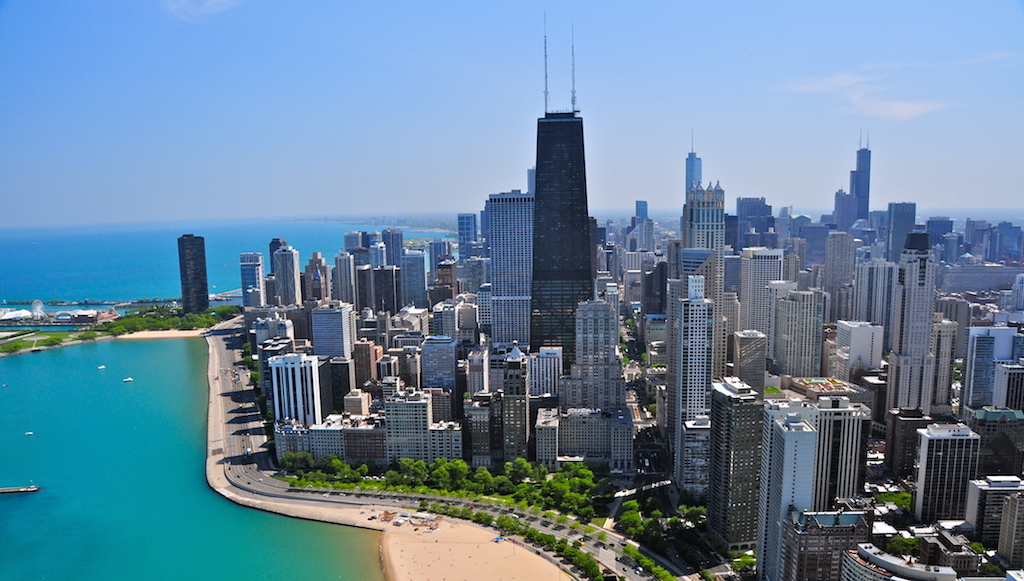
Total Number of Refugees: Roughly 30,000 in Chicagoland; roughly 15,000 in Chicago proper
Refugee Arrivals in 2017: 2,043
Top 5 Countries of Origin: Syria, DRC, Iraq, Myanmar, Afghanistan

Chicago’s history as a Sanctuary City dates back to the 1980s, when the Wellington Avenue Church voted to join the budding sanctuary movement in 1982. The church became the final stop for refugees from El Salvador and Guatemala, who could only enter the United States illegally due to the country’s support of Central American military dictatorships.
Seven years later, former mayor Richard M. Daley signed an executive order guaranteeing people of all nationalities and those without citizenship “fair and equal access” to employment, benefits, and licenses. This was cited by the Chicago Tribune as the moment when Mayor Daley adopted “Washington’s Sanctuary Stance.” This policy of sanctuary led to a 2006 ordinance aimed to give all Chicagoans access “to the services, opportunities, and protection it provides or administers.”
From 2006 onward, Chicago emerged as a well-known sanctuary city in the United States, which Mayor Rahm Emanuel affirmed when he called it “the most immigrant-friendly city in the country.” The city issued a 2012 ‘Welcoming City’ ordinance, which prohibited police from detaining people based on immigration status, before creating 2016 municipal ID program (CityKey) that gave all Chicagoans an official identification that did not contain nationality or immigration status. These actions have made Chicago a target of the Trump administration, and refuses to cooperate with the U.S. Department of Justice’s mandate for sanctuary cities to assist immigration agents.
As the largest city in the Midwest, Chicago is uniquely positioned to be an example to other cities in the area. The city is also located amidst several small Midwestern towns in states like Michigan and Iowa who resettle multiple refugees while refusing the label of “sanctuary city.” Chicago’s seemingly pro-immigration policies must also be examined in the context of its degradation by the current administration as a city wrought with violence. How much of Chicago’s refugee-friendly stance is to restore its public image, and whether this comes at the expense of other marginalized communities in the city, should be considered when studying the its status as a sanctuary.
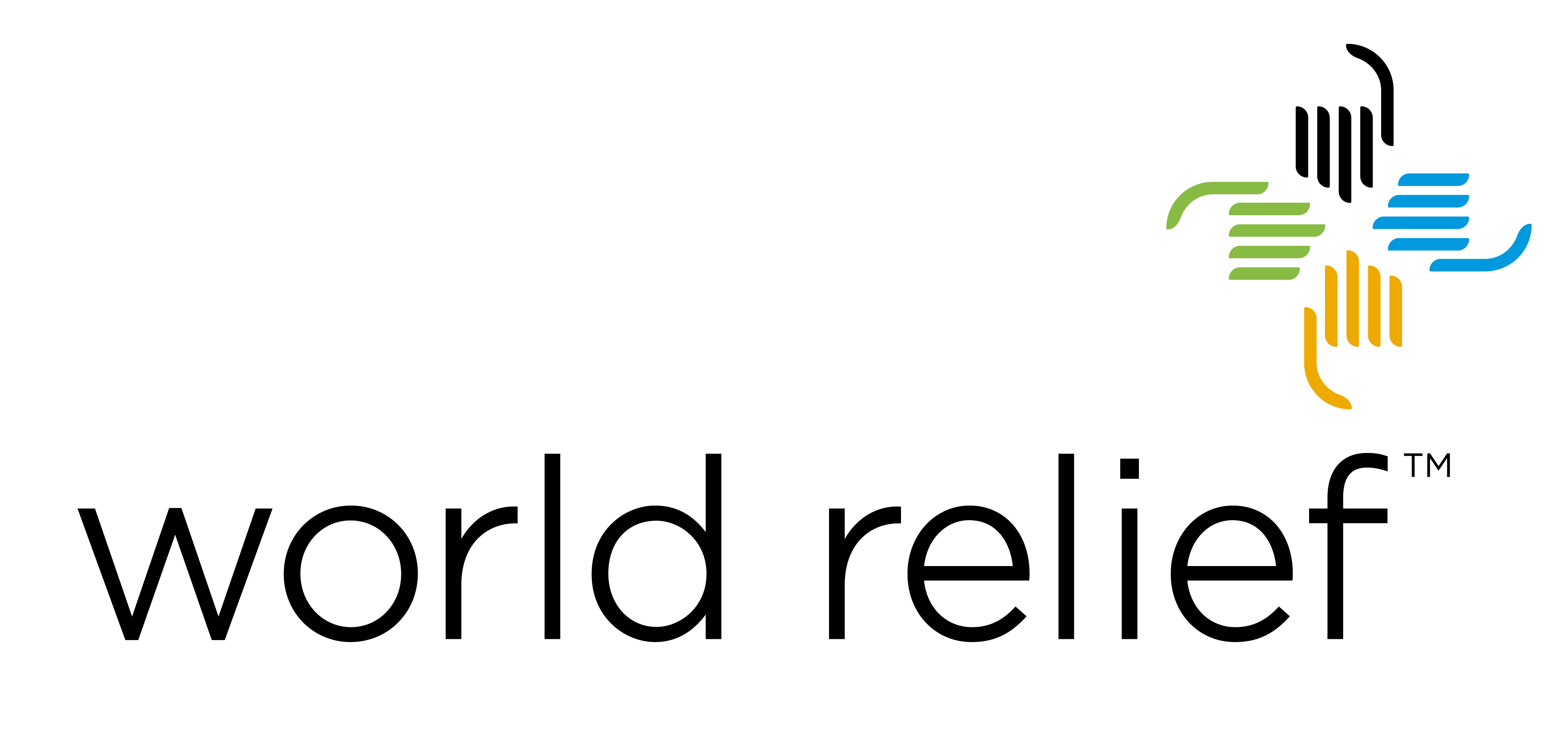
World Relief is an international organization that partners with churches to offer a range of services based on the needs of the location. World Relief Chicago focuses specifically on refugee resettlement, and has assisted in resettling over 15,000 refugees since its 1980 inception.
Services include cultural adjustment case management, employment counseling, job placement, English education, reunification assistance, and medical case management, all offered through the organization’s partnerships with providers across the city. Designated medical services for refugees and immigrants without papers are sparse—no health services in the Illinois Refugee Resettlement Services FY17 Report are based in Chicago proper—making World Relief’s medical case management a critical service in the city.
A notable aspect of this organization is its relationship to the U.S. Department of State, with whom it is contracted to partake in the resettlement process. It is also worth noting the success of World Relief—a Christianity-affiliated organization—in relation to similar organizations affiliated with other faiths, such as Hebrew Immigrant Aid Society, which was forced to end its refugee resettlement program after the State Department severed contracts with resettlement organizations who placed under 100 refugees per year.

RefugeeOne offers similar services to World Relief, with additional youth programming and targeted women’s services, including a mentorship program in which resettled women are matched with volunteer mentors who help them adjust to daily life in their new community. Unlike World Relief, RefugeeOne is a secular organization and is lead by a former Armenian refugee named Melineh Kano who was resettled by the agency in 1984.
The organization is the largest of its kind in Illinois, and has successfully resettled over 17,000 refugees while priding itself on helping those resettled to establish self-sufficiency in a general span of six to nine months.


Eli’s Cheesecake is a popular Chicago restaurant and bakery that is most famous for its namesake offering. 15 percent of its workforce is comprised of resettled, highly-skilled refugees from countries including Iraq, Bhutan, Kosovo, Congo, and Myanmar. Currently, the bakery is preparing to accept resettled Syrian refugees. Elias Kasongo, the company’s purchasing manager and a board member of RefugeeOne, began working at Eli’s in 1994 as a dishwasher before attaining a business degree at Northeastern Illinois University and multiple promotions within the company. Other Chicago-based businesses have adopted similar practices using the model employed by Eli’s.
Eli's almost exclusively hires "skilled" workers, which, while actively pushing against the false perception of refugees as lacking skill, also displays the plight of resettled refugees who may be considered "unskilled."


Loom Chicago is an offshoot of Catholic Charities of the Archdiocese of Chicago, another Christian service organization in the city that offers resettlement services. Volunteers at Loom impart craft skills—jewelry-making, knitting, and weaving among them—to resettled women, or, as Loom refers to them, artisans. The artisans also offer craft workshops that are open to the public. Revenue from the products is split 75/25; 75 percent goes to the artisans, while the remaining 25 goes back to Loom for supply purchases. According to the company’s website, the current employees are from Nepal, Bhutan, Afghanistan, Sudan, Uganda, Syria, and Iraq.
The skillset of Loom’s artisans is broad and diverse, but is typically viewed as traditional women’s work. It could be said that the organization reinforces gender roles by only hiring women. The converse of this argument is that Loom offers a safe space for women in vulnerable situations to make a material contribution and turn a profit within a realm with which they are potentially already familiar.

The Chicago Teachers Union (CTU) has historically been an advocate of all students, including refugees and immigrants, since it was founded in 1937. Its website clearly outlines its policy of welcoming and protecting all of its students, regardless of immigration status. The CTU also expresses discontent with Chicago’s current legal framework for refugees, and argues that the city should be doing much more to solidify its status as a sanctuary city. In the past, the CTU has issued direct statements to Mayor Emanuel, including one urging him to “step up to protect” undocumented immigrants following the reversal of DACA. The CTU website contains number of original resources including guides for other educators to successfully work with refugee students and address their needs. Presently, the CTU is concluding a three-part training series on the issues that directly affect immigrant students.

At Roger C. Sullivan High School, 300 of 641 students—about 45 percent—are immigrants, many of whom are also refugees. 38 countries are represented, and 35 languages are spoken. Known as the “go-to school for refugees” in Chicago, Sullivan runs on a self-designed cohort model that groups English Language Learner (ELL) students together throughout the day for constant language support. The school works closely with refugee resettlement agencies, and is constantly adjusting its academic programming to fit the needs of its population.
Budget cuts by Chicago Public Schools (CPS) and a lack of state funding do not lend themselves to supporting Sullivan’s cohort model, or its need for ELL teachers. However, the school was selected by CPS as just one of two in the state of Illinois to receive federal funding as a “newcomer” center, conceptualized and piloted by Indianapolis Public Schools, that designates it as a refugee and immigrant-friendly institution.
Sullivan “reinvented” its identity as a destination school for resettled refugees after several years of low attendance and graduation rates, poor academic performance, and violence. The high school is a fascinating case study when attempting to answer the question posed at the beginning of this section: how does Chicago reconcile with its multiple vulnerable populations without privileging one over the other?

In addition to Illinois’ current legal framework, a proposed bill entitled The VOICES Act (SB32) is pending. The bill would mitigate the possibility of deportation for immigrants who report domestic violence or other violent crimes to the police. CityKey, Chicago’s municipal ID, is now accepted as a form of identification for voter registration, and also works as a library and transit card. The sites marked on this map continue their operations in spite of increasing federal pressure on Chicago to comply with ICE.

Total Refugee Arrivals in Alameda County (1995-2016) : 6,431
Where are these refugees from?
Syria: 44
Vietnam: 1,609
Bosnia & Herzegovina: 855
Myanmar: 531
Afghanistan: 457
Russia: 411

Oakland has undoubtedly earned a reputation within the United States for its status and actions as a Sanctuary City. Oakland City government has taken numerous actions to defy U.S Immigration and Customs Enforcement including forbidding city employees from providing information to the agency and also the Mayor of Oakland, Libby Schaaf, issuing a preemptive warning to residents about a large ICE raid a few months ago.
As far as U.S. Sanctuary Cities go, Oakland is one of the most progressive which is why it is an interesting city to analyze and also take note of its shortcomings. Working within the federal immigration framework, the United States already accepts an extremely small number of refugees. California actually had the highest resettled refugee population among the 50 states in 2016, with almost 8,000 refugees. However, according to arrivals data, Alameda County welcomes significantly less refugees than other counties such as Los Angeles, Orange, Sacramento, San Diego and Santa Clara. The county that refugees are resettled to is dependent on a number of factors including the existing refugee populations, cost of living and resources available.
The greater Bay Area inluding Oakland has a generally high cost of living and is currently having an affordable housing crisis with some of the highest housing prices in the country. This poses a large barrier for refugee resettlement organizations trying to set up refugees with permanent and decent accommodations. While local government and NGOs are doing their best to create opportunities and provide support to refugees, asylees and to the greater immigrant population, many still face hardship due to high costs of living, discrimination and difficulties acclimating to their new home.
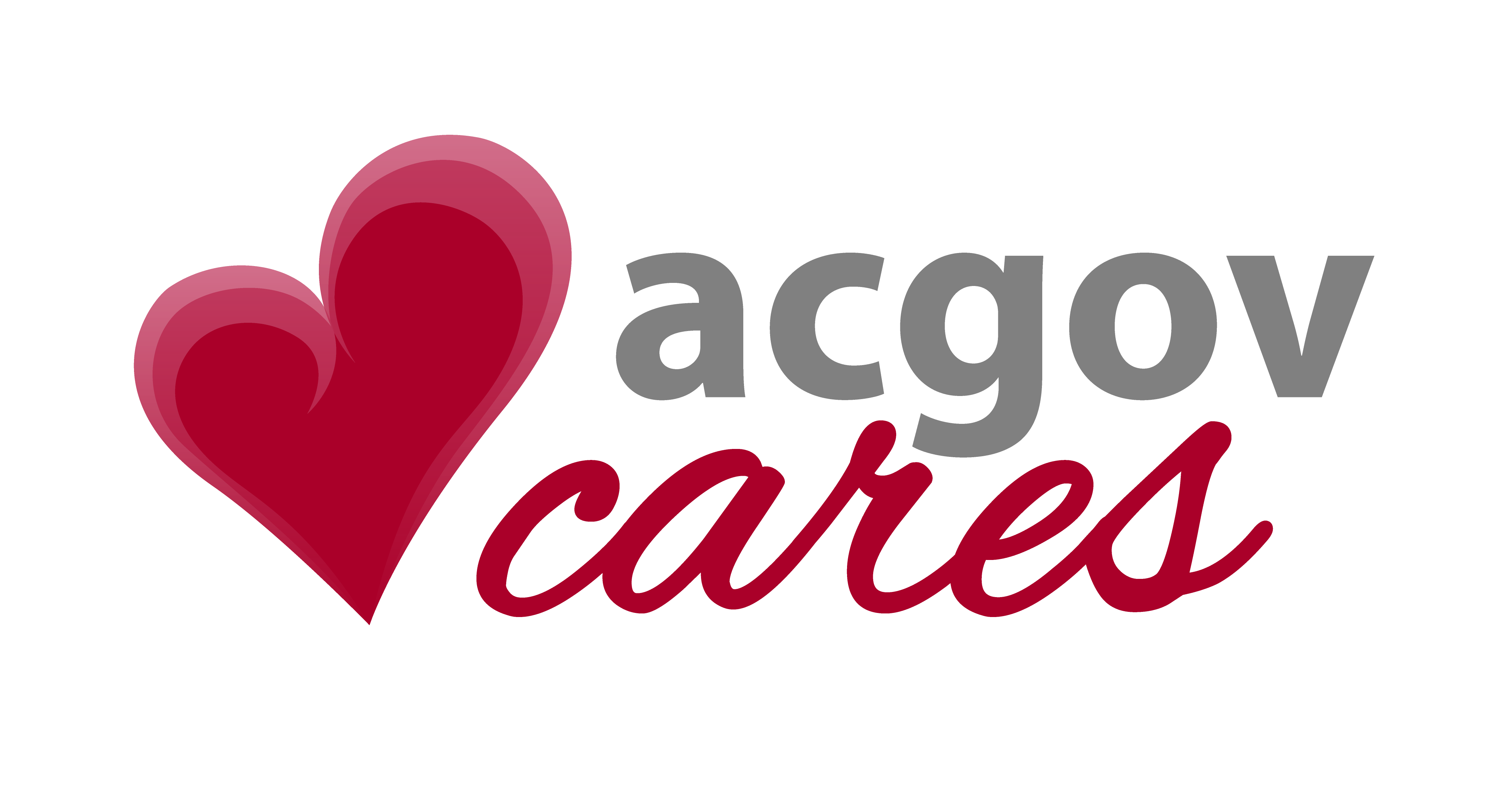
The California Dept. of Social Services is a state government agency that also devolves into county specific social services. When refugees and asylees are resettled, the national voluntary agencies or VOLAGs that are sponsoring them are supposed to be responsible for providing financial assistance in the form of shelter and basic necessities. Often, these organizations are severely underfunded so it often difficult to provide everything a family/ individual wants or needs. The County is responsible for what the VOLAG cannot offer to refugees or asylees through state programs including Refugee Cash Assistance for single adults or couples without children, Medi-Cal, CalWORKS (California Work Opportunity and Responsibility to Kids), and CalFresh. However, in order to be eligible for this financial assistance an individual needs to be either active in an employment training program or be employed which can be difficult for many refugees starting out in Oakland and just learning how to speak English.
"Eligible individuals may receive RCA, Medi-Cal and CalFresh during the first 8 months in the United States."

Founded in 1978, the East Bay Refugee Forum is a coalition of over 30 different refugee oriented organizations and government agencies in the East Bay Area. The EBRF provides various resources to refugees, asylees, SIV holders and others who fled their home country in fear of persecution. Resources include employment training programs, English education classes, pro bono legal services and access to health services. In 2018, there are six scheduled meetings for the EBRF for the organizations and agencies involved to plan and coordinate their service efforts to provide the most conducive environment to supporting refugees and asylees. Having government agencies such as Alameda County Social Services Agency and Public Health Department coordinate with non-profit organizations is a significant in creating an open dialogue to government services understanding what refugees and asylees are experiencing and what can be improved.
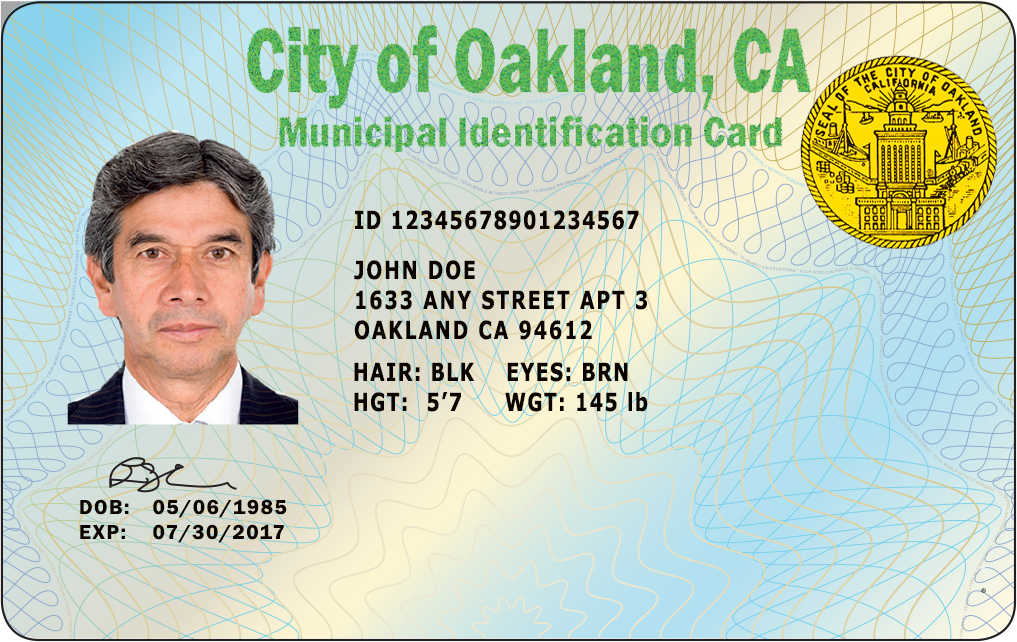
Oakland has its own municipal ID system that is regarded as a valid form of identification to obtain a drivers licence and accessing medical services from healthcare providers. It can also be used to register for community college or be a valid form of photo ID for law enforcement. The documents of valid identification to obtain this Oakland City ID include a series of immigration documents that can be current or expired. This is an extremely useful resource for those who are undocumented as well as those who need another form of identification at short notice and for the price of only $15 for adults.
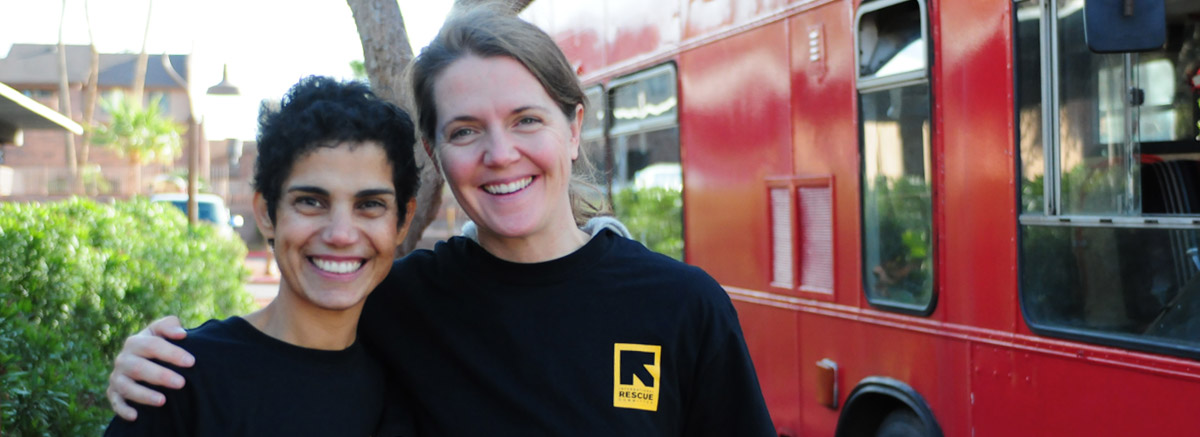
The International Rescue Commmittee has multiple regional offices in the U.S. including six in California. As a prominent international organization, the IRC conducts a lot of work in resettling refugees in Oakland along with other more local non-profit organizations. One of the significiant assistance programs provided by IRC is the Soft Landing Fund, which provides rent and utilities support to new refugee and asylees that have arrived in Northern California in the past six months. However, it is a donation based fund so it is really dependent on the amount of donations recieved by the IRC. The IRC also works with AirBNB through their Open Homes intiatiave to provide free interim housing for refugees and asylees. When the intiative first started in June of last year there were already more than 160 landlords in the Bay Area signed up to provide free housing. These AirBNB rentals are used as temporary housing during the search to find permanent housing for refugees and asylees when previously the IRC often had to post these families and individuals in costly hotels.

As part of the California Dept. of Social Services there is a The California Newcomer Education and Well-Being (CalNEW) project which provides funding to California school districts for higher populations of refugees and other eligible school-aged immigrants being served by the Office of Refugee Resettlement. State Assembly Bill 99 passed last year appropriated ten million dollars over the next three fiscal years to multiple school districts to assist with English language classes, hiring bilingual counselors and other measures to improve school programs dedicated to helping younger refugees and asylees adjust and recieve the educational experience they deserve. The Oakland Unified School District has so far recieved $1.8 million dollars over two years to improve their English Language Learner and Multilingual Achievement (ELLMA) newcomer programs.
![]()
The 1951 Coffee Company is a non-profit organization that functions as a training program to help refugees and asylees improve their English skills, provide barista and basic job training in order to build their resume and apply for employment around the Bay Area. It was founded in 2015 by two former International Rescue Committee employees as a method of aiding refugees and asylees gain marketable skills when many individuals face difficulties in securing that first job while adjusting to a completely new workforce/ job market. The name of the organization is actually derived from the 1951 UN Convention relating to the status of Refugees. In January of 2017, around the time of the first Trump travel ban, a 1951 Coffee Company cafe opened in Berkeley almost exclusively staffed by refugees and asylees. The 1951 Coffee Company continues to accept donations to support its training program and it has recieved a lot of public support, includng a $63,000 grant from Starbucks last year.

Bay Area Legal Aid is the largest civil legal aid provider in the Bay Area that provides services for the residents of multiple Bay Area counties, including Alameda county. It provides legal advice and representation to low-income clients across a various number of civil legal issues. Lawyers assist with immigration services, consumer protection, domestic violence and sexual assault and housing discrimination issues. One of the largest problems for refugees, asylees and other documented or undocumented immigrants within Oakland is the high cost/ competitiveness of the housing market, which leaves room for high levels of discrimination from landlords. Even though it is technically illegal for a landlord to inquire about a perspective tenants immigration status many do so anyway which makes it extremely difficult for many immigrants to obtain housing. The Oakland Housing Authority that provides public and affordable housing must abide by federal regulations from HUD that at least one family member be a U.S. citizen or have eligibile immigration status. This means many immigrants must seek housing ftom private landlords. For those who have secured housing, there are many stories about landlords who maintain poor housing conditions and threaten tenants with reporting them to ICE if they lodge complaints against them.
Pro bono legal aid such as Bay Area Legal Aid and other similar legal organizations is significant in making sure that the Oakland's laws are upheld and the rights of the minority population of refugees, asylees and other immigrants are protected.
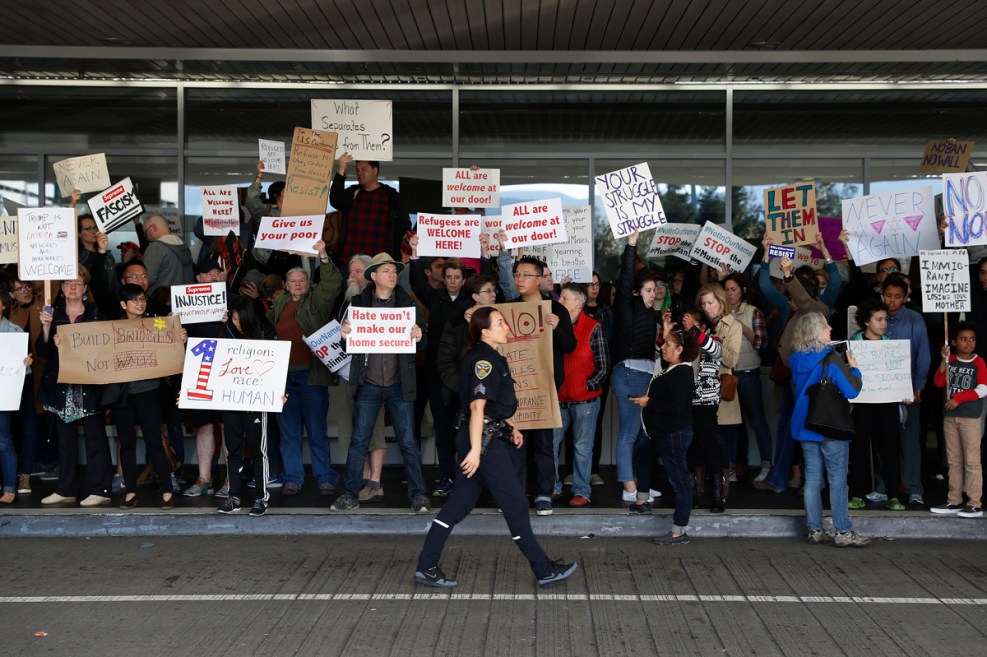
Oakland officials have made it clear that they are not going to back down from opposing the Trump administration's dangerous immigration policies and continue to demonstrate their dedication to protecting immigrants, such as a City Council ordinance that was recently passed that requires review by City Council and the Privacy Advisory Commission of all surveillance technology used by law enforcement. Alameda County and a few other California counties have also recently denied contracts with an automatic license plate reader company that has provided information to ICE. A current threat to Oakland's status as a sanctuary city is the current lawsuit from the Justice Department against SB 54 which is the California state law for forbidding direct law enforcement cooperation with ICE. Unfortunately, Oakland and the whole state of California must operate within the federal framework and it will remain to be seen whether the sanctuary law will be defended in court. In the long term, Oakland as a city must work to create a supportive environment for smaller refugee communities such as the Syrian population because it is necessary for a faster integration process since the cost of living in Oakland is so high.
Our hope is that as resources for displaced peoples continue to grow, so will this map. As more cities and destinations are added, perhaps the definition of what it means to be a "Sanctuary City" will become expanded and clarified, making it a genuine tool for more inclusive policies and community-building.
